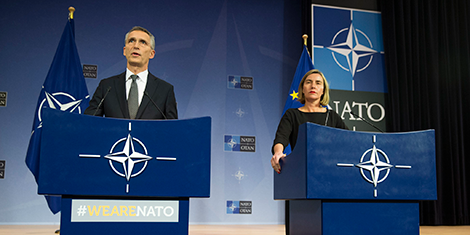HARSH V. PANT
Pages
▼
3 April 2018
New Delhi is walking into the China trap
Gilgit-Baltistan: Story of how region 6 times the size of PoK passed on to Pakistan
Prabhash K Dutta
 The UK Parliament has said what India has been saying for 70 years. That Gilgit-Baltistan belongs to India as an integral part of the state of Jammu and Kashmir after it legally acceded to the Union in 1947. Passing a motion yesterday, the UK Parliament said that Gilgit-Baltistan is a legal and constitutional part of Jammu and Kashmir, illegally occupied by Pakistan since 1947.
The UK Parliament has said what India has been saying for 70 years. That Gilgit-Baltistan belongs to India as an integral part of the state of Jammu and Kashmir after it legally acceded to the Union in 1947. Passing a motion yesterday, the UK Parliament said that Gilgit-Baltistan is a legal and constitutional part of Jammu and Kashmir, illegally occupied by Pakistan since 1947.
WHERE IS GILGIT-BALTISTAN?
Afghanistan’s road to peace won’t be an easy one
By Asfandyar Mir
 Is there hope for an end to the long war in Afghanistan? A month ago, President Ashraf Ghani offered the Taliban a “comprehensive peace deal.”Defense Secretary Jim Mattis says the United States is open to a peace settlement in Afghanistan. And some Taliban leaders have expressed an interest in talks, as well. For now, however, the prospects for peace in Afghanistan remain grim. There are multiple steps to a potential deal — and many barriers to success. Here are five pitfalls on the road to peace.
Is there hope for an end to the long war in Afghanistan? A month ago, President Ashraf Ghani offered the Taliban a “comprehensive peace deal.”Defense Secretary Jim Mattis says the United States is open to a peace settlement in Afghanistan. And some Taliban leaders have expressed an interest in talks, as well. For now, however, the prospects for peace in Afghanistan remain grim. There are multiple steps to a potential deal — and many barriers to success. Here are five pitfalls on the road to peace.Xi Jinping’s grasp on power has captured the West’s attention – now what?
by Stanley Rosen.
Leaders and analysts in the West are now stepping forward to acknowledge that they have misunderstood China. As a journalist at The Economist put it, “Decades of optimism about China’s rise have now been discarded.” As someone who has been teaching and writing on Chinese politics since the 1970s, I know that China’s current president, Xi Jinping, is fundamentally different from his predecessors. The West has held out hope that each leader after Mao Zedong, including Xi, would move in the direction of democracy. Now, constitutional reform has snapped the West back to reality. But can the West fashion a unified, viable strategy to deal with an emerging superpower that refuses to accept Western political values?
Chinese versus Western media
The Belt and Road Initiative: Is China Putting Its Money Where its Mouth Is?
By: Johan van de Ven
Five years after it entered discussions surrounding China’s foreign policy, the Belt and Road Initiative remains a subject of political priority and public attention. Beijing has recently made a habit of attempting to persuade visiting heads of state to offer formal endorsement of the initiative, as Emmanuel Macron, Theresa May, and Dutch Prime Minister Mark Rutte have all found. Major international banks, among them Standard Chartered and Deutsche Bank, have signed on to Belt and Road-themed programs, while public attention towards the initiative continues to grow after a May 2017 spike. [1] Against this backdrop, it seems only natural that new project openings and capital commitments should continue on an upward trajectory. However, data collected by RWR Advisory Group shows that new projects in infrastructure, power, and energy—the lifeblood of the Belt and Road Initiative—have declined every year after peaking in 2015, measured both in terms of number of new projects and dollar amounts spent.
Why Does Everyone Hate Made in China 2025?
 On the same day that the Trump administration announced $60 billion in tariffs against China last week, the Office of the United States Trade Representative (USTR) dropped the results of its Section 301 investigation into China’s unfair trade practices. The nearly 200-page report presents a searing indictment of China’s disregard for intellectual property, discrimination against foreign firms, and use of preferential industrial policies to unfairly bolster Chinese firms. Interestingly, the report singles out one Chinese government initiative, in particular, as a prime example of Beijing's egregious behavior: Made in China 2025.
On the same day that the Trump administration announced $60 billion in tariffs against China last week, the Office of the United States Trade Representative (USTR) dropped the results of its Section 301 investigation into China’s unfair trade practices. The nearly 200-page report presents a searing indictment of China’s disregard for intellectual property, discrimination against foreign firms, and use of preferential industrial policies to unfairly bolster Chinese firms. Interestingly, the report singles out one Chinese government initiative, in particular, as a prime example of Beijing's egregious behavior: Made in China 2025.What the West Doesn’t Get About Xi Jinping
By Kevin Rudd
 The recent decision by China’s National People’s Congress to abolish term limits for the office of the president has sent shock waves through the West: Xi Jinping, the current officeholder, is suddenly being described as a new Confucian autocrat, overseeing a state still governed by a Marxist-Leninist party, presiding over a selectively capitalist economy, with ambitions to make his country a global superpower. This sense of shock says more about the West than China. For the last five years, Western leaders and analysts have often projected onto China an image of their preferred imaginings, rather than one reflecting the actual statements of China’s own leaders, or in the physical evidence of Chinese statecraft. These have long pointed to a vastly different reality.
The recent decision by China’s National People’s Congress to abolish term limits for the office of the president has sent shock waves through the West: Xi Jinping, the current officeholder, is suddenly being described as a new Confucian autocrat, overseeing a state still governed by a Marxist-Leninist party, presiding over a selectively capitalist economy, with ambitions to make his country a global superpower. This sense of shock says more about the West than China. For the last five years, Western leaders and analysts have often projected onto China an image of their preferred imaginings, rather than one reflecting the actual statements of China’s own leaders, or in the physical evidence of Chinese statecraft. These have long pointed to a vastly different reality.China’s four-decade route to the world’s No 1 economy
by Peter Wong
 Its impressive achievements are thanks to perseverance and the far-reaching economic and societal changes that have been introduced since 1978. Within our lifetimes, China has transformed from an agrarian economy to a world-beating digital and consumption-led powerhouse, driven by smartphone-wallet shoppers. this year marks the 40th anniversary of China’s economic reform and opening. In December 1978, China’s “open door” policy signposted a turning point in its economic management and trajectory.
Its impressive achievements are thanks to perseverance and the far-reaching economic and societal changes that have been introduced since 1978. Within our lifetimes, China has transformed from an agrarian economy to a world-beating digital and consumption-led powerhouse, driven by smartphone-wallet shoppers. this year marks the 40th anniversary of China’s economic reform and opening. In December 1978, China’s “open door” policy signposted a turning point in its economic management and trajectory.At the heart of China’s techno-nationalism is a hit list of 200 unicorns
Xie YuMaggie Zhang
 As the Chinese government continues to gear up for what’s increasingly looking like its “techno-nationalism” push, officials are believed to have created a hit list of some 200 top firms, that it hopes to see listed on mainland bourses. Together with a set of new rules issued by the State Council, China’s cabinet, on Friday evening that focused on regulating Chinese Depositary Receipts (CDRs) offering by overseas listed tech giants like Alibaba, a campaign by Beijing is in full swing to get its most innovative companies listed on the home market.
As the Chinese government continues to gear up for what’s increasingly looking like its “techno-nationalism” push, officials are believed to have created a hit list of some 200 top firms, that it hopes to see listed on mainland bourses. Together with a set of new rules issued by the State Council, China’s cabinet, on Friday evening that focused on regulating Chinese Depositary Receipts (CDRs) offering by overseas listed tech giants like Alibaba, a campaign by Beijing is in full swing to get its most innovative companies listed on the home market.China Re-Enters the Korean Field of Play
Through a top-level meeting with North Korea, China is signaling it will not be a bystander in the evolving dynamics on the Korean Peninsula.China may have an opening to restore its long-frosty relations with South Korea by extending outreach on trade measures.Both North Korea and South Korea have an interest in including China to some extent in their evolving diplomatic dynamic.
Huawei’s R&D budget hits $14bn as next-generation networks arrive
Group’s fast-rising research spending feeds into US fears of Chinese 5G dominance © REX/Shutterstock Share on Twitter (opens new window) Share on Facebook (opens new window) Share on LinkedIn (opens new window) Save Save to myFT Louise Lucas in Shenzhen MARCH 30, 2018 Print this page20 Huawei spent a record $13.8bn on research and development last year, ranking the Chinese tech giant among the world’s top spenders, and projects its budget will rise to as much as $20bn each year.
10 Takeaways from the Fight against the Islamic State
By Michael Dempsey
 Nearly three years on from the Islamic State’s high water mark in the summer of 2015, there are several lessons that the United States and its allies can discern from the terrorist group’s meteoric rise to control large parts of Iraq and Syria to the loss of its physical caliphate late last year. The steady decline in ISIL’s fortunes is striking given the palpable fear its rise in the summer of 2014 sparked across Washington, when a common question circulating within the policy community was whether Baghdad itself might fall. Many of these takeaways will be relevant to U.S. policymakers as they attempt to prevent the group from reconstituting itself in the coming months.
Nearly three years on from the Islamic State’s high water mark in the summer of 2015, there are several lessons that the United States and its allies can discern from the terrorist group’s meteoric rise to control large parts of Iraq and Syria to the loss of its physical caliphate late last year. The steady decline in ISIL’s fortunes is striking given the palpable fear its rise in the summer of 2014 sparked across Washington, when a common question circulating within the policy community was whether Baghdad itself might fall. Many of these takeaways will be relevant to U.S. policymakers as they attempt to prevent the group from reconstituting itself in the coming months.Post-Conflict Reconstruction A U.S. Containment Strategy for Syria
By Aaron Stein
 The United States’ interests in Syria lie in formalizing its battlefield gains with a negotiated settlement and then leaving the country. To achieve this goal, it will need to find common cause in the short term with its greatest geopolitical foe, Russia. Doing so will require Washington to acknowledge a painful but obvious truth: Syrian President Bashar al-Assad has largely routed the anti-regime insurgency, consolidated power in much of the country’s west, and received open-ended support and security guarantees from Moscow and Tehran. Assad will govern most of Syria for the foreseeable future.
The United States’ interests in Syria lie in formalizing its battlefield gains with a negotiated settlement and then leaving the country. To achieve this goal, it will need to find common cause in the short term with its greatest geopolitical foe, Russia. Doing so will require Washington to acknowledge a painful but obvious truth: Syrian President Bashar al-Assad has largely routed the anti-regime insurgency, consolidated power in much of the country’s west, and received open-ended support and security guarantees from Moscow and Tehran. Assad will govern most of Syria for the foreseeable future.Foreign Investment and U.S. National Security
by Jonathan Masters and James McBride
 The United States is both the world’s largest foreign direct investor and the largest beneficiary of foreign direct investment (FDI). But like every sovereign country, it has sought to temper its embrace of open markets with the protection of its national security interests. Achieving this balance, which has shifted over time, has meant placing certain limitations on overseas investment in strategically sensitive sectors of the U.S. economy.
The United States is both the world’s largest foreign direct investor and the largest beneficiary of foreign direct investment (FDI). But like every sovereign country, it has sought to temper its embrace of open markets with the protection of its national security interests. Achieving this balance, which has shifted over time, has meant placing certain limitations on overseas investment in strategically sensitive sectors of the U.S. economy.
 The United States is both the world’s largest foreign direct investor and the largest beneficiary of foreign direct investment (FDI). But like every sovereign country, it has sought to temper its embrace of open markets with the protection of its national security interests. Achieving this balance, which has shifted over time, has meant placing certain limitations on overseas investment in strategically sensitive sectors of the U.S. economy.
The United States is both the world’s largest foreign direct investor and the largest beneficiary of foreign direct investment (FDI). But like every sovereign country, it has sought to temper its embrace of open markets with the protection of its national security interests. Achieving this balance, which has shifted over time, has meant placing certain limitations on overseas investment in strategically sensitive sectors of the U.S. economy.What’s Next for Russia’s Relations With the West?
by Jonathan Masters
 In response to the poisoning of a former Russian spy on British soil, President Donald J. Trump has ordered the expulsion of dozens of Russian diplomats and the closing of the Russian consulate in Seattle. The United States joins more than twenty other governments taking similar steps against Moscow. In a written interview, CFR’s Stephen Sestanovich says the unity of action, particularly in Europe, is a “real warning sign to Putin.” Meanwhile, U.S. policy toward Russia is likely to become “more hostile” with Trump’s newly configured national security team, he says.
In response to the poisoning of a former Russian spy on British soil, President Donald J. Trump has ordered the expulsion of dozens of Russian diplomats and the closing of the Russian consulate in Seattle. The United States joins more than twenty other governments taking similar steps against Moscow. In a written interview, CFR’s Stephen Sestanovich says the unity of action, particularly in Europe, is a “real warning sign to Putin.” Meanwhile, U.S. policy toward Russia is likely to become “more hostile” with Trump’s newly configured national security team, he says. EU-NATO Alignment after Brexit
By Daniel Keohane
 At a summit in Brussels on March 22, EU heads of government will issue a statement of solidarity with the United Kingdom following the recent nerve agent attack on double-agent Sergei Skripal in Salisbury. This statement of support follows similar strong declarations by NATO and the EU’s Foreign Affairs Council. It is still not certain what additional action may be taken by the alliance or the EU, as it is not yet clear how the UK government will further respond to the attack, beyond having already expelled 23 Russian diplomats.
At a summit in Brussels on March 22, EU heads of government will issue a statement of solidarity with the United Kingdom following the recent nerve agent attack on double-agent Sergei Skripal in Salisbury. This statement of support follows similar strong declarations by NATO and the EU’s Foreign Affairs Council. It is still not certain what additional action may be taken by the alliance or the EU, as it is not yet clear how the UK government will further respond to the attack, beyond having already expelled 23 Russian diplomats.Technology and National Security: The United States at a Critical Crossroads
Mar 2018
James Kadthke and John Wharton argue that American leadership in science, technology and innovation (ST&I) has long been the foundation of US national security. As a result, the rapid globalization of science and technology capacities presents a serious and long-term risk to the US. Indeed, so does America’s own reduced investment in certain technology areas, the lack of a clear ST&I national strategy and more. So, how can the US maintain its technological preeminence and security into the future? Here are our authors’ recommendations.
Preventing the Balkanization of the Internet
MICHAEL SPENCE , FRED HU
With the entire global economy becoming inextricably linked to the Internet and digital technologies, stronger regulation is more important than ever. But if that regulation is fragmented, clumsy, heavy-handed, or inconsistent, the consequences for economic integration – and, in turn, prosperity – could be severe. BEIJING – The recent revelation that more than 50 million Facebook profiles were harvested by app and given to political consultancy Cambridge Analytica has produced a backlash against the platform. But it is just the latest example of the risks associated with the Internet, which forms the core of today’s digital revolution.
The View From Olympus: Setting the Agenda
Both in Europe and in the United States, it looks more and more likely that sometime within the next decade the real Right will come to power. It did so in part in the U.S. with the election of President Trump. The past week saw it succeed in the elections in Italy, where real Right parties won a majority (whether they can put a government together is another question), and in Germany, where the Social Democrats voted to commit political suicide by joining the faux-conservative CDU in another grand coalition. That leaves the real Right party, the AFD, the leader of the opposition in the Bundestag, which positions it well to surpass the Social Democrats in the eastern German States.
The View From Olympus: Danger Ahead?
Source Link
President Trump’s acceptance of North Korea’s request for a summit meeting was exactly right. Summits have their risks, but far better the risks of a summit than the risk of another Korean war. But if the Korean situation now appears to be moving the right way, our position on Iran may be doing the opposite. I do not know why President Trump has such a dislike for Iran. Iran is leading the Shiites in their war with the Sunnis, but what is that to us? Our only interest in that war is that they kill each other in the largest numbers possible, so there are fewer of both to fight us. If the President withdraws the United States from the deal that halted the Iranian nuclear program for a time, as he threatens to do and as the new Secretary of State, Mr. Pompeo, may encourage him to do, our position is likely to worsen, not improve. The other major power signatories to the agreement will not withdraw. If the Iranians are smart, they will also continue to adhere to the deal. The effect will be to isolate the United States and put Iran in the morally advantageous “victim” position.
The Macron Leaks: The Defeat of Informational Warfare
As the United States was investigating Russia’s interference in the U.S. presidential election, many observers expressed concerns that France might be the next target of Russia’s information warfare strategy. History indeed repeats itself, unless one draws lessons from past mistakes. After France’s new president, Emmanuel Macron, told a reporter during a press conference with Russia’s president, Vladimir Putin, that during the French electoral campaign Russia Today (RT) and Sputnik “were agents of influence which on several occasions spread fake news about me personally and my campaign. They behaved like organs of influence, of propaganda and of lying propaganda,” there are good reasons to think the lesson from the U.S. election has been learnt.
Macron’s fake news law will protect democracy
By AURORE BELFRAGE
 Twitter commentators were quick to attack him for oversimplifying the problem to make a political point. They may be right. But at its core, Macron’s instinct is the right one. We need to rethink the rules of engagement in social media and hold accountable producers, distributors and financiers of content, without compromising on freedom of speech. Macron’s proposal includes tougher rules for social media platforms when it comes to revealing the sources of sponsored content. It would also strengthen the authority of France’s media watchdog — the Conseil Supérieur de l’Audiovisuel, or CSA — to impose heavy fines on outlets who publish or distribute lies, rumors and gossip.
Twitter commentators were quick to attack him for oversimplifying the problem to make a political point. They may be right. But at its core, Macron’s instinct is the right one. We need to rethink the rules of engagement in social media and hold accountable producers, distributors and financiers of content, without compromising on freedom of speech. Macron’s proposal includes tougher rules for social media platforms when it comes to revealing the sources of sponsored content. It would also strengthen the authority of France’s media watchdog — the Conseil Supérieur de l’Audiovisuel, or CSA — to impose heavy fines on outlets who publish or distribute lies, rumors and gossip.In Balkans, Britain rejoins battle for influence
 BELGRADE — The West is fighting back against Russia in a battle for influence in the Balkans. But although the European Union has renewed its interest in the region, the latest charge is being led by Britain. Seven years after shutting down in Belgrade, the BBC on Monday reopened its Serbian language service, launching a website and unveiling partnerships with local media outlets. The move is part of a broader soft-power struggle in the Balkans, particularly Serbia, where pro-Russian media have been pumping out fake news stories — such as a recent piece from Kremlin-backed Sputnik claiming that NATO was preparing to conduct military exercises in Bosnia and Herzegovina using depleted uranium.
BELGRADE — The West is fighting back against Russia in a battle for influence in the Balkans. But although the European Union has renewed its interest in the region, the latest charge is being led by Britain. Seven years after shutting down in Belgrade, the BBC on Monday reopened its Serbian language service, launching a website and unveiling partnerships with local media outlets. The move is part of a broader soft-power struggle in the Balkans, particularly Serbia, where pro-Russian media have been pumping out fake news stories — such as a recent piece from Kremlin-backed Sputnik claiming that NATO was preparing to conduct military exercises in Bosnia and Herzegovina using depleted uranium.Disinformation And Fake News: Old Wine In New Bottles – Analysis
By Kumar Ramakrishna*
 Disinformation, Fake News and Deliberate Online Falsehoods are nothing new. They are all forms of Propaganda. Singapore should be concerned when a Sending State’s Strategic Propaganda mechanisms and its Agents of Influence within our shores seek to achieve Information Dominance. As the Select Committee on Deliberate Online Falsehoods continues its public hearings on the issue, it seems apt to take a step back and consider the whole matter of “Disinformation” and “Fake News” from a wider historical and conceptual perspective.
Disinformation, Fake News and Deliberate Online Falsehoods are nothing new. They are all forms of Propaganda. Singapore should be concerned when a Sending State’s Strategic Propaganda mechanisms and its Agents of Influence within our shores seek to achieve Information Dominance. As the Select Committee on Deliberate Online Falsehoods continues its public hearings on the issue, it seems apt to take a step back and consider the whole matter of “Disinformation” and “Fake News” from a wider historical and conceptual perspective.Increasing International Cooperation in Cybersecurity and Adapting Cyber Norms
By Elena Chernenko, Oleg Demidov and Fyodor Lukyanov
 Information and communications technology (ICT) presents one of the most critical modern challenges to global security. Threat assessments predict that the next major international crisis could be due to a state or terrorist group weaponizing ICTs to devastate critical infrastructure or military logistics networks. The proliferation of asymmetric warfare (i.e., conflicts between nations or groups that have disparate military capabilities) has increased states’ use of ICTs, which necessitates the development of an international code of cyber conduct.
Information and communications technology (ICT) presents one of the most critical modern challenges to global security. Threat assessments predict that the next major international crisis could be due to a state or terrorist group weaponizing ICTs to devastate critical infrastructure or military logistics networks. The proliferation of asymmetric warfare (i.e., conflicts between nations or groups that have disparate military capabilities) has increased states’ use of ICTs, which necessitates the development of an international code of cyber conduct.To Learn How to Protect America From Digital Threats, Look to Europe
BY MAX BERGMANN
 The revelation that Cambridge Analytica, a data firm hired by the Trump campaign, exploited Facebook data from 50 million Americans should be a wake-up call. Our government is failing to protect us online. Foreign intelligence agencies need only check social media user-agreement boxes to harvest our data and run influence campaigns. Meanwhile, as everything from hospitals to nuclear power plants to Wall Street are connected online, America is increasingly vulnerable. Yet compared with our allies, there is little urgency to tackle the problem.
The revelation that Cambridge Analytica, a data firm hired by the Trump campaign, exploited Facebook data from 50 million Americans should be a wake-up call. Our government is failing to protect us online. Foreign intelligence agencies need only check social media user-agreement boxes to harvest our data and run influence campaigns. Meanwhile, as everything from hospitals to nuclear power plants to Wall Street are connected online, America is increasingly vulnerable. Yet compared with our allies, there is little urgency to tackle the problem.The unstoppable rise of veganism: how a fringe movement went mainstream
by Dan Hancox
Late on a Thursday afternoon in early March, just off Brick Lane in the heart of London’s nightlife hotspot Shoreditch, 23-year-old Louisa Davidson is taking calls and co-ordinating cables and scaffolds, as shocking pink Vegan Nights banners are hung around the expansive courtyards of the Truman Brewery. There is a chill in the air, quickly warmed by a buzzing atmosphere more like a music festival than an ethical food fair, as BBC Radio 1Xtra and House of Camden DJs play records, cocktails are poured and entrepreneurs sell zines and street wear alongside the vegan sushi, patisserie and “filthy vegan junk food”.
After the Facebook scandal it’s time to base the digital economy on public v private ownership of data
Evgeny Morozov
 The continuing collapse of public trust in Facebook is welcome news to those of us who have been warning about the perils of “data extractivism” for years. It’s reassuring to have final, definitive proof that beneath Facebook’s highfalutin rhetoric of “building a global community that works for all of us” lies a cynical, aggressive project – of building a global data vacuum cleaner that sucks from all of us. Like others in this industry, Facebook makes money by drilling deep into our data selves – pokes and likes is simply how our data comes to the surface – much like energy firms drill deep into the oil wells: profits first, social and individual consequences later.
The continuing collapse of public trust in Facebook is welcome news to those of us who have been warning about the perils of “data extractivism” for years. It’s reassuring to have final, definitive proof that beneath Facebook’s highfalutin rhetoric of “building a global community that works for all of us” lies a cynical, aggressive project – of building a global data vacuum cleaner that sucks from all of us. Like others in this industry, Facebook makes money by drilling deep into our data selves – pokes and likes is simply how our data comes to the surface – much like energy firms drill deep into the oil wells: profits first, social and individual consequences later.WANT TO KNOW WHICH IT JOBS ARE ON THE HIGHWAY TO EXTINCTION?
Rahul Sharma
There's much said and written about the transformative impact of advanced and new-age technologies on businesses. Technology is seeping deeper into the basic fabric of life with every passing day. Already, a number of businesses have been completely overhauled by new technologies, and several others continue to adopt these upheavals. One of the hot topics of debate, now, is the implication this has on jobs.
Technology is changing the face of job markets
ARMY NEWS Army Official Outlines Plans for Future Tactical Network
By Connie Lee
 As the Army moves forward with its plan to revamp the tactical network, the service is looking to use its current Warfighter Information Network-Tactical as a baseline for future capabilities, according to a leader of the initiative. “It establishes a foundation. But it needs to be modernized, it needs to be augmented with capability that gives us enhanced, multiple means of network transport,” Maj. Gen. Peter Gallagher said in an interview March 27 at the Association of the United States Army's Global Force Symposium in Huntsville, Alabama.
As the Army moves forward with its plan to revamp the tactical network, the service is looking to use its current Warfighter Information Network-Tactical as a baseline for future capabilities, according to a leader of the initiative. “It establishes a foundation. But it needs to be modernized, it needs to be augmented with capability that gives us enhanced, multiple means of network transport,” Maj. Gen. Peter Gallagher said in an interview March 27 at the Association of the United States Army's Global Force Symposium in Huntsville, Alabama.